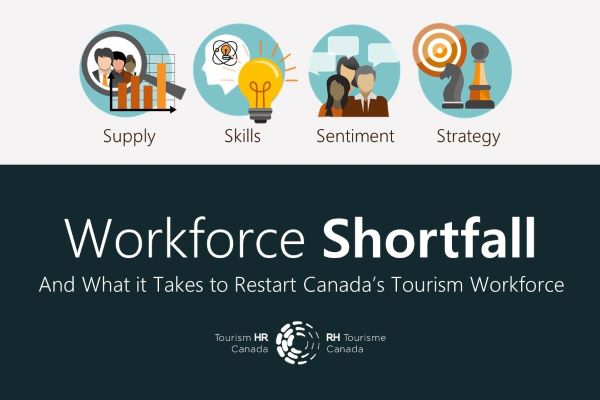 Tourism HR Canada hosted its annual Labour Market Forum last week, welcoming over 300 delegates from across the country. This annual hallmark event highlights the pressing labour market challenges facing the tourism sector, providing perspective and inviting meaningful discussion and action.
Tourism HR Canada hosted its annual Labour Market Forum last week, welcoming over 300 delegates from across the country. This annual hallmark event highlights the pressing labour market challenges facing the tourism sector, providing perspective and inviting meaningful discussion and action.
Participants shared their experiences and insights on topics including the impact of COVID-19, mental health, inclusion and diversity, immigration, and education-industry links. Their feedback has already begun to contribute to recommended policies and strategies to help restart the workforce and enable the tourism industry to recover from the most catastrophic year on record.
A key takeaway from the event is the need for a national tourism labour market strategy—one that builds on the few local or regional efforts and addresses many items discussed at the forum. Such a strategy is instrumental for workforce planning at policy tables, at board tables, in businesses, and with academia.
An effective workforce strategy will be coherent and ensure a consistent focus and message, reflecting a common voice. It will help build targeted resources, reduce the chance of duplication, and enable groups to leverage funding from various sources. The strategy will be an all-of-tourism approach to reflect the scale and scope of the challenge, while accounting for regional differences.
Tourism’s restart can only happen if it has a skilled and functioning workforce. Other countries have plans for the sector—it’s simply a necessity to ensure we can rebuild a competitive, resilient, and inclusive workforce.
A pan-Canadian tourism workforce strategy is featured in our new Workforce Shortfall Report. This document outlines priority strategies to restart the tourism workforce and frames issues that are core to the revitalization of our tourism labour market: supply, skills, sentiment, and strategy.
We encourage you to read this report and connect with us to advance these strategies to build a resilient, competitive, and inclusive labour market.
